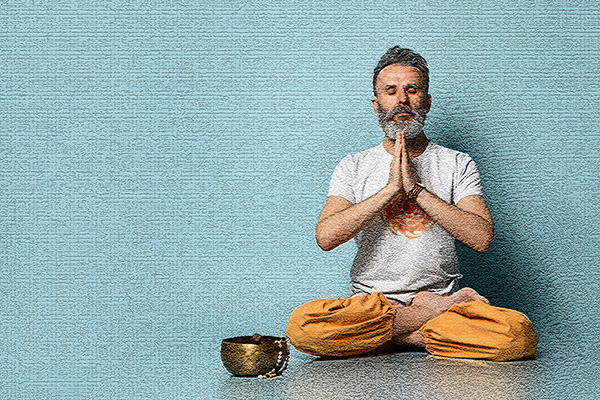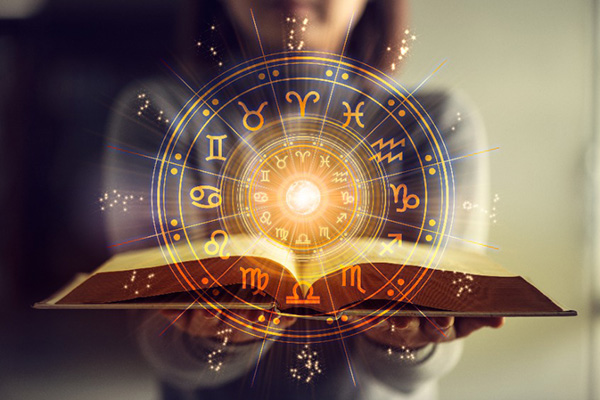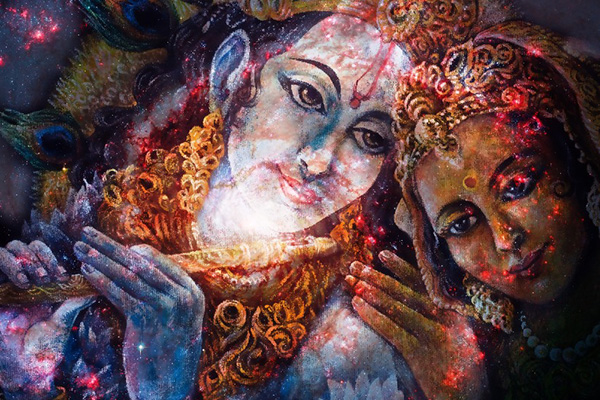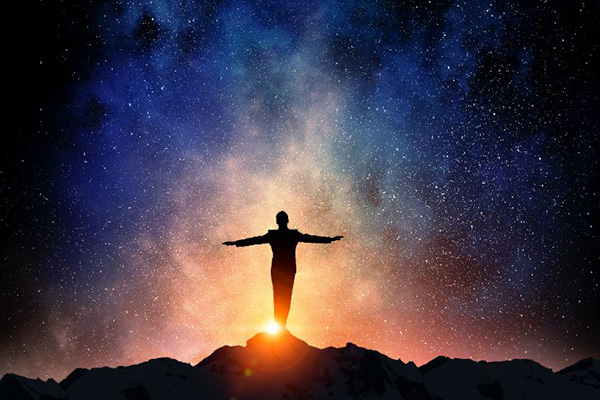religion
Faith As A Spiritual Science
 It is generally assumed that all forms of ‘faith’ is merely matter of ‘belief.’ In other words, to have faith is seen as having belief that is blind; it is a belief without reason, evidence, or experience. However, there is another kind of faith that develops through a reciprocal relationship.
It is generally assumed that all forms of ‘faith’ is merely matter of ‘belief.’ In other words, to have faith is seen as having belief that is blind; it is a belief without reason, evidence, or experience. However, there is another kind of faith that develops through a reciprocal relationship.
According to the Vedic teachings and the practices of Krishna Bhakti (awareness of, and affection for Krishna, the Supreme Person) faith begins with hearing spiritual knowledge from a liberated soul, who is beyond the four defects of material conditioning.
Ordinary people (or conditioned souls) have four defects due to their contact with material existence. These defects are:
- The tendency to make mistakes.
- To be illusioned.
- The propensity to cheat others.
- To have imperfect senses.
At the initial phase of faith, there is an appeal to the intelligence of the conditioned soul that evokes exploration of knowledge through hearing deeper spiritual insights, which in turn appeals to their intelligence to apply it.
From the experiment of applying it, comes observable experiential results that corroborate the truth of what was initially heard from the transcendental authority (liberated soul).
This confirming experience not only yields faith in the knowledge and process applied, but it also forms an evidential knowing beyond a mere baseless, ‘blind’ belief. Therefore, developing a relationship with God through Bhakti-Yoga or Krishna Consciousness is a spiritual science.
May Our Souls Continue To Rejoice
 We have indeed so much to be grateful for today. May the joys and rememberances of this post-pandemic holiday season keep our hearts alive with hope, faith and gratitude throughout the coming year.
We have indeed so much to be grateful for today. May the joys and rememberances of this post-pandemic holiday season keep our hearts alive with hope, faith and gratitude throughout the coming year.
May our souls continue to rejoice with the miracles of joy, hope, faith and love of the Christmas of the Christians; Yule of the Pagans; Candle-mas of the Celts; Hanukkah of the Hebrews; Eid ul-Fitr of Islam; Pan-African festival of Kwanzaa; and Hindu celebration of Diwali.
In the old days, before the reformers came, the Old Oak King conquered the Holly King every year around this time. Mother Earth would then sleep under a white blanket of snow, the quiet ice of still waters, everything waiting for the Summer Solstice, when the Holly King would win the battle in turn.
We face the same battles of duality in our own lives. At times we are happily progressing along our own path, expanding, learning, growing spiritually, when suddenly an impasse comes along that requires us to become still, to be patient, to wait, to rest, to contemplate, to accept. We are seldom thankful, as we would prefer to continue rushing towards our goals, our dreams, our desires. We grumble, we complain, we resist, we fight the wait, and then we wonder why we are waiting so long.
Sometimes we are meant to just take the time to rest, draw strength, find ourselves. The true lesson and miracle of this season is the wait, the peace, the rest, until we once again see our dreams more clearly.
The Evolution Of Your Metron
 With the rapid expansion of digital communication technology we are increasingly coming into an evolutionary shift of consciousness as it relates to relationships between individuals in the human family.
With the rapid expansion of digital communication technology we are increasingly coming into an evolutionary shift of consciousness as it relates to relationships between individuals in the human family.
Let’s first look at social and spiritual structures in relationships. I would like to resurrect for the purpose the Greek word metron (μέτρον). Metron is a unit of measure that we can use to explain our sphere of influence, and also the spiritual gifts and styles that we use to influence this sphere.
Many of us have a limited metron, and consistently manifest together with the same grouping of souls on the planet. We each have a family structure that is related to soul agreements before incarnating on the planet. This is why we sometimes meet a person and have the feeling that we have known them our whole lives. What is happening is that our souls are united in the same metron.
We are all inter-connected with one another. Think of it this way: we have the Earth making up one bustling metron of consciousness, or a single metron with many parts. Then we have our solar system making up a greater metron; then the galaxy encompassing the metron units on an even greater scale; next the universe; then the multiverse; and who knows what else is out there compiling greater and greater complexity together.
Our spiritual or soul experience is very similar. We have a small group of people making up our metron, and then we have societal and social structures that increase this metron moving out to a greater and greater expansive experience, until we have the cosmic or universal consciousness.
A Brief History Of Astrology
 The energies of the planets and stars affect us on many levels every day, whether we were aware of it or not. The earliest humans looked especially to the movements and phases of the Sun and Moon to guide them in their decisions about when to hunt, when to plant and harvest, and when to prepare for winter or migrate.
The energies of the planets and stars affect us on many levels every day, whether we were aware of it or not. The earliest humans looked especially to the movements and phases of the Sun and Moon to guide them in their decisions about when to hunt, when to plant and harvest, and when to prepare for winter or migrate.
From this evolved the practice and study of Astrology. The early civilizations of Mesopotamia were the first to observe the patterns formed by stars in the galaxy as long ago as 3000 BC, while Indian astrology began to emerge as far back as 1200 BC.
The original astrologers identified five ‘wandering stars,’ which together with the sun and moon became the seven original ‘planets.’ More planets were of course identified over time, as technology advanced to introduce the telescope and other astronomical devises.
The Babylonians are generally credited for first developing formal Astrology, because they developed astrological charts to predict the recurrence of the seasons and certain celestial events. Centuries later, Ancient Egypt and Greece discovered Babylonian Astrology, where it soon became highly regarded as a science and was eventually also embraced by the Romans, as well as in the Middle East. In time, its popularity spread throughout the rest of the world. Today, we still use the Roman names for the zodiac signs.
Meanwhile, separate systems of Astrology also emerged in India, China, and Mesoamerica. It remains unclear whether the Babylonian, Indian (known today as Hindu or Vedic Astrology) and Chinese systems of Astrology evolved in isolation and independently, or whether they mutually influenced each other. There are many similarities between these systems, but also many distinct differences. Scholars have been studying and debating this for centuries, but the matter remains inconclusive.
The Selfless Flow Of Divine Love
 Love is a divine spiritual energy. It originates in the divine heart of the Supreme Personality of Godhead. The internal energy of his love is so strong that it emanates out of his body as love personified, in the form of the Supreme Goddess.
Love is a divine spiritual energy. It originates in the divine heart of the Supreme Personality of Godhead. The internal energy of his love is so strong that it emanates out of his body as love personified, in the form of the Supreme Goddess.
In the spiritual tradition of Bhakti, which is founded on the Vedas, a collection of religious texts originating in ancient India, the Supreme Goddess is identified by the Sanskrit term shakti, the primordial divine feminine energy, and the Supreme God as shaktiman, the divine masculine source of this cosmic energy.
She also bears the name Radha, meaning she who gives the greatest pleasure to him, whom she calls by the name Krishna, the ‘all-attractive.’ Together, they form the Divine Couple, an eternal reservoir of reciprocal divine love which ever increases.
Love is alive. It is a living, giving, and flowing force. Love, like God, is unlimited and ever-expanding. Divine Love offers its transcendence for us souls in this world to follow, serve, and ultimately return to our original, eternal spiritual nature.
Our spirit, soul or jivatma is therefore an expression of the primordial energy of the shaktiman, which emanates both from and for his love. Whereas Radha’s love is infinite, we individual souls are infinitesimal. We merely serve to enhance and celebrate with our supreme existence the Divine Couple’s infinite love, which in turn imbues our souls with joy.
One way our soul can serve the joy and union of the Divine Couple in this world is by allowing the spiritual energy of love to flow through our own heart to others. The beauty of true love is that it is never selfish and does not seek to satisfy the demands of the ego. Like a river rippling toward the ocean, divine love courses toward the one it fills with its own essence.
Learning To Accept Yourself (Warts And All)
 A consistent trend I have noticed doing psychic readings and metaphysical counseling for many years. This trend relates to rejection, and our reaction to being rejected by our human family. It is not natural to abandon or reject loved ones, but in my experience as a pastoral counselor and psychic healer, I have noticed that it is a challenge that many have faced in this life.
A consistent trend I have noticed doing psychic readings and metaphysical counseling for many years. This trend relates to rejection, and our reaction to being rejected by our human family. It is not natural to abandon or reject loved ones, but in my experience as a pastoral counselor and psychic healer, I have noticed that it is a challenge that many have faced in this life.
Recently, as I was doing a channeling session with one of my clients, this came up and we both had a revelation about our own experiences of rejection. The discussion we had was not only about rejection and how we as humans experience it, but also about how we perceive acceptance. Our experience of rejection comes from only one source, namely our expectation, and also how we resonate with the acceptance we receive from others.
When we are children it is natural for us to allow our parents to be our source. They were the picture of God in our lives, and in ideal situations they were our source of acceptance, providing nurture and stability. Many times, when you see a religious group adopting a vengeful and cruel depiction of the Divine, it stems from a refusal to remove the archetypal depiction from God they experienced with their parents.
Many times, the search for source extends itself outward, and the responsibility of our fulfillment is put on other people or organizations. In some cases, fulfillment is found in substances and can also lead to addictive behaviors. We look to these external ‘sources’ to provide us comfort and satisfaction.
It is natural for us to live in community and relationships, so our endeavors toward fulfillment are often projected outward in our relationships. Unfortunately, since we all have an intrinsic need to identify with and live from Source, we find ourselves continually reaching for fulfillment that we rarely find. This leads to heartache, loss, and broken relationships within the human family.
The Powerful Magic Inside
 Every human being has powerful magic inside, and part of my job is to teach people how to use that magical energy. I understand the term ‘magic’ is somewhat of a loaded word, so let me re-frame it. Jesus called if faith and told us that with a small amount of faith we can move mountains. Buddha called it thought manifestation and explained that our conscious thought produces our reality.
Every human being has powerful magic inside, and part of my job is to teach people how to use that magical energy. I understand the term ‘magic’ is somewhat of a loaded word, so let me re-frame it. Jesus called if faith and told us that with a small amount of faith we can move mountains. Buddha called it thought manifestation and explained that our conscious thought produces our reality.
How we focus our energy will eventually manifest in one way or another in our lives. For some people this implies ‘darkness’ or ‘evil.’ Darkness does exist, but I believe that it exists only as a catalyst to increase our vibrational frequency if we are ready to do so.
My personal belief is that darkness cannot ‘stick’ if there is nothing for it to stick to. This is why, when discussing lower vibrational frequencies, the best action is to increase your vibration. In my view there is really no war of light versus dark, or good versus evil. We can turn on the lights and then if there is something that needs to be cleaned up, we can clean it up. The darkness does not struggle when the lights come on. It just goes away.
For nearly all problematic circumstances our primary goal should be to change our consciousness and increase our vibrational frequency. It is quite rare that we are we taught to use this magic in everyday life.
There have been many spiritual teachers that have talked about it in the past, as I stated above. Jesus had enough magic (faith) to walk on water and Buddha could exert his magic (consciousness) to tame a wild elephant.